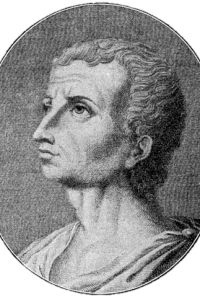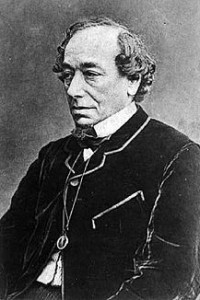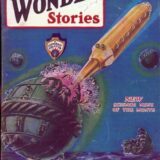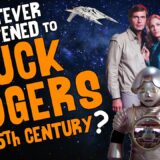I love reading alternate history. It combines my interest in history with my geeky appreciation of science fiction. The genre, however, didn’t just show up out of the vacuum. Over the years men and women have added their contributions, brick my brick building the literary foundation that is still taking shape today. Its an old genre and yet how we understand in the context of speculative fiction is a relatively recent phenomenon.
Who are these authors who created the genre and why should we remember them? Like any great tale, we must start at the beginning.
Livy
 Titus Livius Patavinus (also known as Livy) was a Roman historian who wrote the great history of the Empire and hobnobbed with the imperial family. He also wrote what could be the first published work of alternate history. In his famous history Ab Urbe Condita Libri, Livy speculates on what would have happened if Alexander the Great had gone west and whether Rome could have defeated him. Not only do we see this classic historian dabble in some counterfactuals, but he also shows an incredible bias in his belief that the young republic could have defeated the general who conquered the known world. Likely published somewhere between 35-30 BC, making this nationalist propaganda the oldest alternate history known to exist.
Titus Livius Patavinus (also known as Livy) was a Roman historian who wrote the great history of the Empire and hobnobbed with the imperial family. He also wrote what could be the first published work of alternate history. In his famous history Ab Urbe Condita Libri, Livy speculates on what would have happened if Alexander the Great had gone west and whether Rome could have defeated him. Not only do we see this classic historian dabble in some counterfactuals, but he also shows an incredible bias in his belief that the young republic could have defeated the general who conquered the known world. Likely published somewhere between 35-30 BC, making this nationalist propaganda the oldest alternate history known to exist.
Alain-René Lesage
It would take almost two thousand years before we come to the next recorded work of alternate history. Were there other alternate histories written in between? Perhaps, but not many alternate historians recognize any such works. Instead the next recognize work would be Alain-René Lesage‘s 1732 publication Les Aventures de Monsieur Robert Chevalier (The Adventures of the Chevalier de Beauchêne). Lesage was a French novelist and playwright known for his humor. Was he trying to be humorous when he wrote about Native Americans discovering the Old World before Columbus set sail (although some do claim that actually happened)?
Jean-Baptiste-Claude Delisle de Sales
The French continued to dominate the early period of alternate history, continuing with Jean-Baptiste-Claude Delisle de Sales‘ 1791 work Ma République. The French philosopher and Young Earth opponent (back when you could be thrown in jail for denying the Earth was older than 6,000 years) wrote this as a history textbook, but speculates on how the French Revolution could have been avoided if Louis XVI had been stronger willed. Like Livy, Sales uses a counterfactual that reflects the feeling of the time. Unlike Livy, however, who wrote his what if during the height of the Roman Empire, Sales almost willfully wishes that for a more capable leader who could have prevented the troubles his homeland was going through. Sadly this came out before the Reign of Terror, the Revolutionary War and the rise of Napoleon.
Isaac and Benjamin Disraeli
 Sometimes alternate historians just run in families. British historian Isaac Disraeli not only was the first person on record to write an alternate history work in English, he also was the first to dedicate the entire work to the subject, possibly writing the first ever counterfactual history. He wrote an essay entitled “Of a History of Events Which Have Not Happened” which was first published in 1824 in his Curiosities of Literature. In it he speculated on ways history could have changed and discussed Livy’s work on the subject.
Sometimes alternate historians just run in families. British historian Isaac Disraeli not only was the first person on record to write an alternate history work in English, he also was the first to dedicate the entire work to the subject, possibly writing the first ever counterfactual history. He wrote an essay entitled “Of a History of Events Which Have Not Happened” which was first published in 1824 in his Curiosities of Literature. In it he speculated on ways history could have changed and discussed Livy’s work on the subject.
Its likely Isaac discussed what ifs with his son Benjamin Disraeli, better known as the Prime Minister who served twice during the reign of Queen Victoria and for his many cameo appearances steampunk stories. Benjamin was also a writer and perhaps his father’s explorations into what ifs inspired him to write The Wondrous Tale of Alroy, an 1833 work about a Jewish “messiah” who builds a world empire from Baghdad. This may in fact be the first full-length alternate history novel, although some claim it is actual a secret history. You can decide for yourself as Alroy is available at Project Gutenberg.
Where to next?
We saw alternate history transform from the idle speculation of historians into full-fledged counterfactuals and literary narratives. Things would change, however, as the Napoleonic Wars became history and a new nation across the Atlantic Ocean began to throw its weight around in the literary world…










